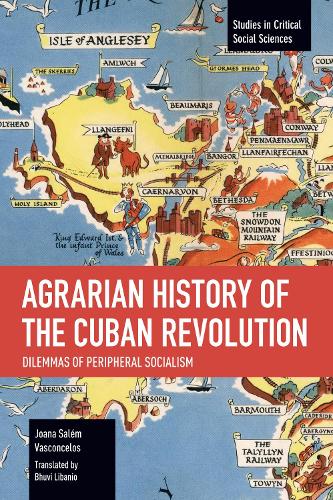
Agrarian History of the Cuban Revolution: Dilemmas of Peripheral Socialism
(Paperback)
Publishing Details
Agrarian History of the Cuban Revolution: Dilemmas of Peripheral Socialism
By (Author) Joana Salem Vasconcelos
Translated by Bhuvi Libiano
Haymarket Books
Haymarket Books
4th September 2024
United States
Classifications
General
Non Fiction
Agriculture, agribusiness and food production industries
972.91064
Physical Properties
Paperback
332
Width 152mm, Height 228mm
Description
In Agrarian History of the Cuban Revolution, the Brazilian historian Joana Salm Vasconcelos presents in clear language the complicated challenge of overcoming the condition of Latin America's underdevelopment through a revolutionary process.
Based on diverse historical sources, she demonstrates why the sugar plantation economic structure in Cuba was not entirely changed by the 1959 Revolution.
Vasconcelos narrates in detail the three dimensions of Cuban agrarian transformation during the decisive 1960s the land tenure system, the crop regime, and the labour regime and its social and political actors. She explains the paths and detours of Cuban agrarian policies, contextualized in a labour-intensive economy that needs desperately to increase productivity and, at the same time, promised widely to emancipate workers from labour exploitation. Cuban agrarian and economic contradictions are well-synthetized with the concept of Peripheral Socialism.
Author Bio
Joana Salm Vasconcelos, has a Ph.D. on Economic History at University of So Paulo and a Master's Degree on Economic Development at State University of Campinas. She is coordinating editor of Latin American Perspectives (US) and associate researcher of Centro de Estudios de Historia Agraria en Amrica Latina (CEHAL).
